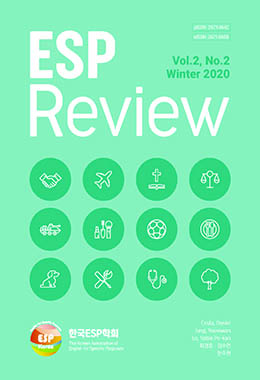KCI 후보
보편적 학습 설계(UDL)에 기반한 ESP 교육과정 구상: 일본 리츠메이칸 아시아태평양대학의 사례를 중심으로
UDL framework-based ESP course development: A case study of Ritsumeikan Asia Pacific University in Japan
한국ESP학회
2021.06
* 발행 기관의 요청으로 이용이 불가한 자료입니다.




